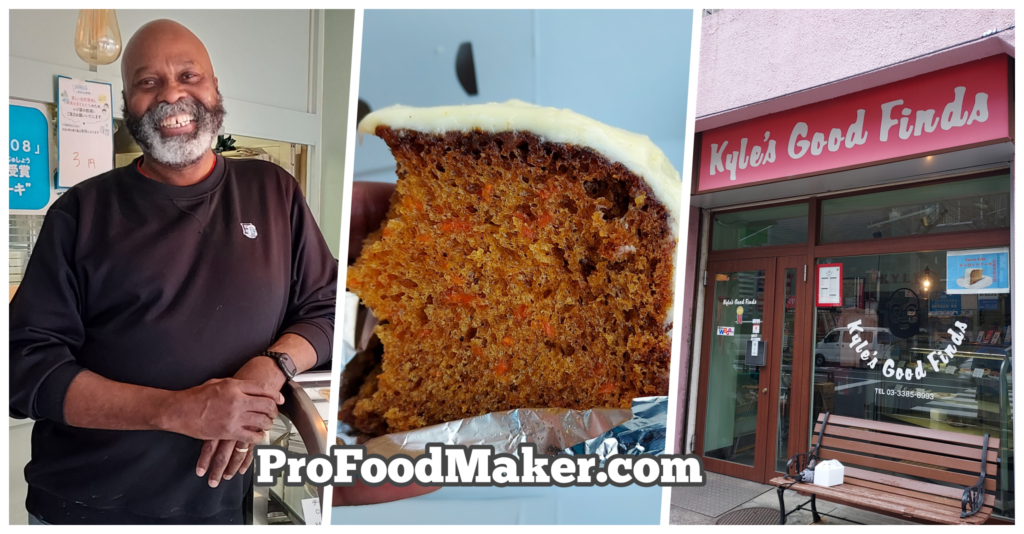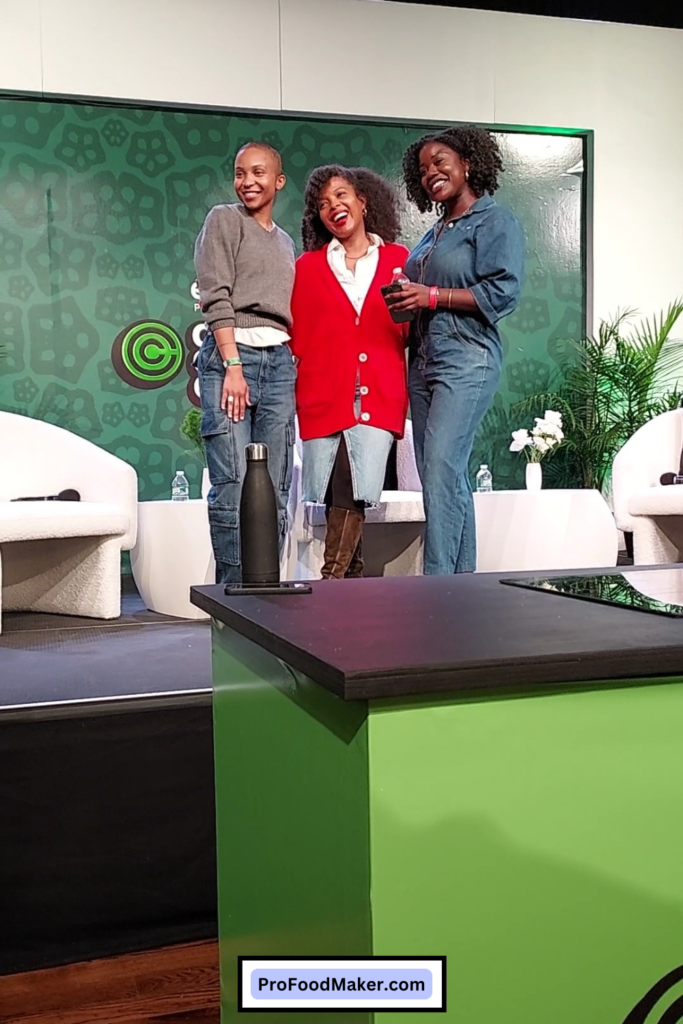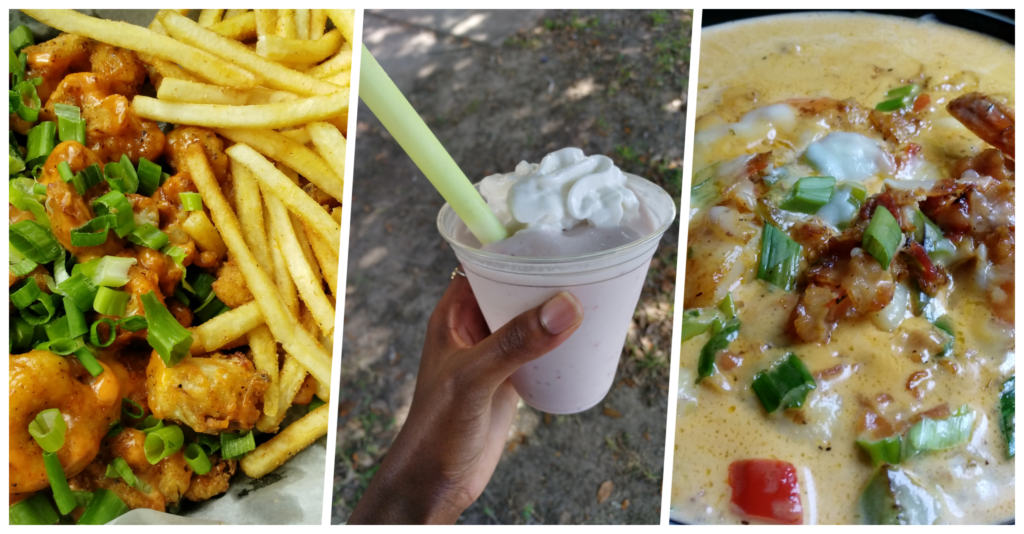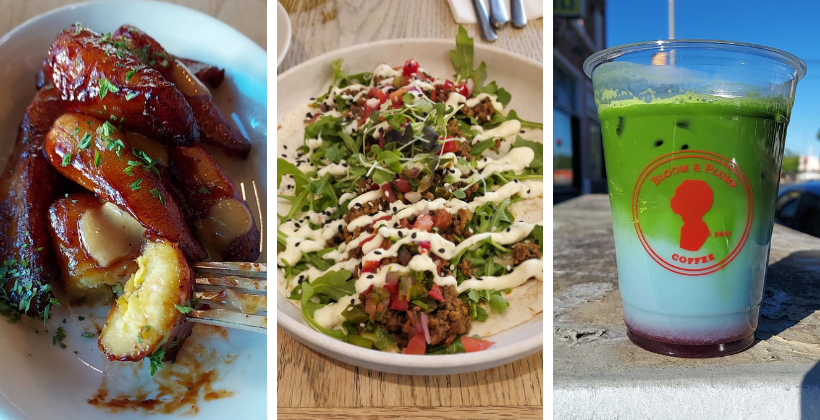
2024 Recap of Japan Travel and Food Conferences & Looking Ahead to 2025
Last updated on March 21st, 2025 at 02:12 am
Pro Food Maker turned 5 this year. I didn’t celebrate. I didn’t even mention it. Why bother? And I felt the same way about this 2024 recap.
Until I sat down, scrolled through the pictures on my phone and realized how much I’ve learned, what I’ve accomplished and how much fun I’ve had this year.
I’m writing this to first, sincerely thank every single person who has spent even a few minutes on Pro Food Maker.
Whether that’s on the website or the content on social media.
And it’s most likely NOT what I post on social media, since….I don’t really post there. More on that later. Maybe.
Second, I *actually* want to celebrate. What exactly, I’m not sure. But when I think back to when I started PFM, I had no idea what I was doing.
And I certainly didn’t know if I’d keep it going for this long.
Lastly, I’m going to get into what I learned this year that might be helpful for your project or business in 2025 and beyond.
Pro Food Maker 2024 Recap
PFM Goes International: The Japan Series
What a serious privilege to be able to spend time in various parts of Japan.
It’s one of my favorite places in the world because of the people, public transportation and cafe hopping.
Oh, and Black owned restaurants, too!
Do not leave Tokyo without going to Soul Food House in Azabujuban and Kyle’s Good Finds in Nakano.

All of my friends (and random people in tech I come across) have dreams of opening a cafe.
If you’re serious about starting a coffee shop, then Japan is a place you’ve got to visit for cafe inspiration.
I wrote about some of the unique spots I’ve visited in my cafe hopping post.
Before that, I published an article on whether or not robot restaurants were going to take over the world.
Luckily, the answer is no.
Showing my face at food conferences & events
So, basically, more travel.
I’ve been able to meet so many people I’ve talked to on social media, in person.
As much as I love being a home body and working remotely, even I can’t deny the importance of building connections face-to-face.
My favorite events this year were EatOkra’s 3C Conference and Food Funded East.


Both in New York City. A place that I didn’t really care for.
But that might be changing after getting a feel for the food scene here.
What I loved at these events, and want to see more of, is food founders discussing their challenges and triumphs with securing funding for their businesses.
Even if that means they bootstrapped their company.
Which in my opinion, is the best way to go.
However, there are limitations to this, which is why so many food entrepreneurs seek [and often waste a lot of time with] venture capital.
Instagram? It’s [still] a no for me
I haven’t posted on Instagram in years.
When I first took a break from Instagram, I figured I’d come back after a few months.
But it felt really good not posting.
So, I didn’t come back.
And I don’t know if I’ll ever post on Instagram.
Which is way more dramatic than it needs to sound.
But I seriously don’t miss posting. But I miss connecting with you all there.
While I figure out what to do about this, I’ll be over on LinkedIn.
This was the perfect time to embed a LinkedIn post but LinkedIn has hidden this option, for some reason.
What I want to see for Black creators & food entrepreneurs in 2025
1. Create & monetize your website
We need to stop relying solely on social media to:
- grow our content creator careers and/or
- make money for our businesses
One of the best business decisions you can make is having (and using) a website.
You can absolutely make money with your website through ads, digital products and more.
Even though it takes time, sometimes years, it’s worth the effort.
And you learn skills (digital marketing, copywriting, etc) that you can use to elevate your own business or you can start a career in marketing.
2. Less pursuit of venture capital
Venture capital is a type of funding that you can use for your business but it is notoriously difficult to get.
And it’s often a waste of time to even pursue.
I’ve talked to countless founders, like Kai Nortey of Kubé Nice Cream, and they’ve spent months, sometimes years attempting to get VC funding.
That’s valuable time that you need to actually run your business.
Learn more about why venture capital is [most likely] not right for your business.
3. Starting more food cooperatives
A food cooperative is a community-owned grocery store.
Too many communities, especially Black communities, are located in a food apartheid.
This means that our neighborhoods lack access to nutritious and delicious food, but have plenty of fast food restaurants and liquor stores.
And this is intentional.
Instead of waiting for a Kroger or a Trader Joe’s to decide to open a location, communities are pooling their resources and opening locally owned and operated grocery stores.
Fertile Ground Food Cooperative in Raleigh, NC is an example of this and they are a Black-led organization.

